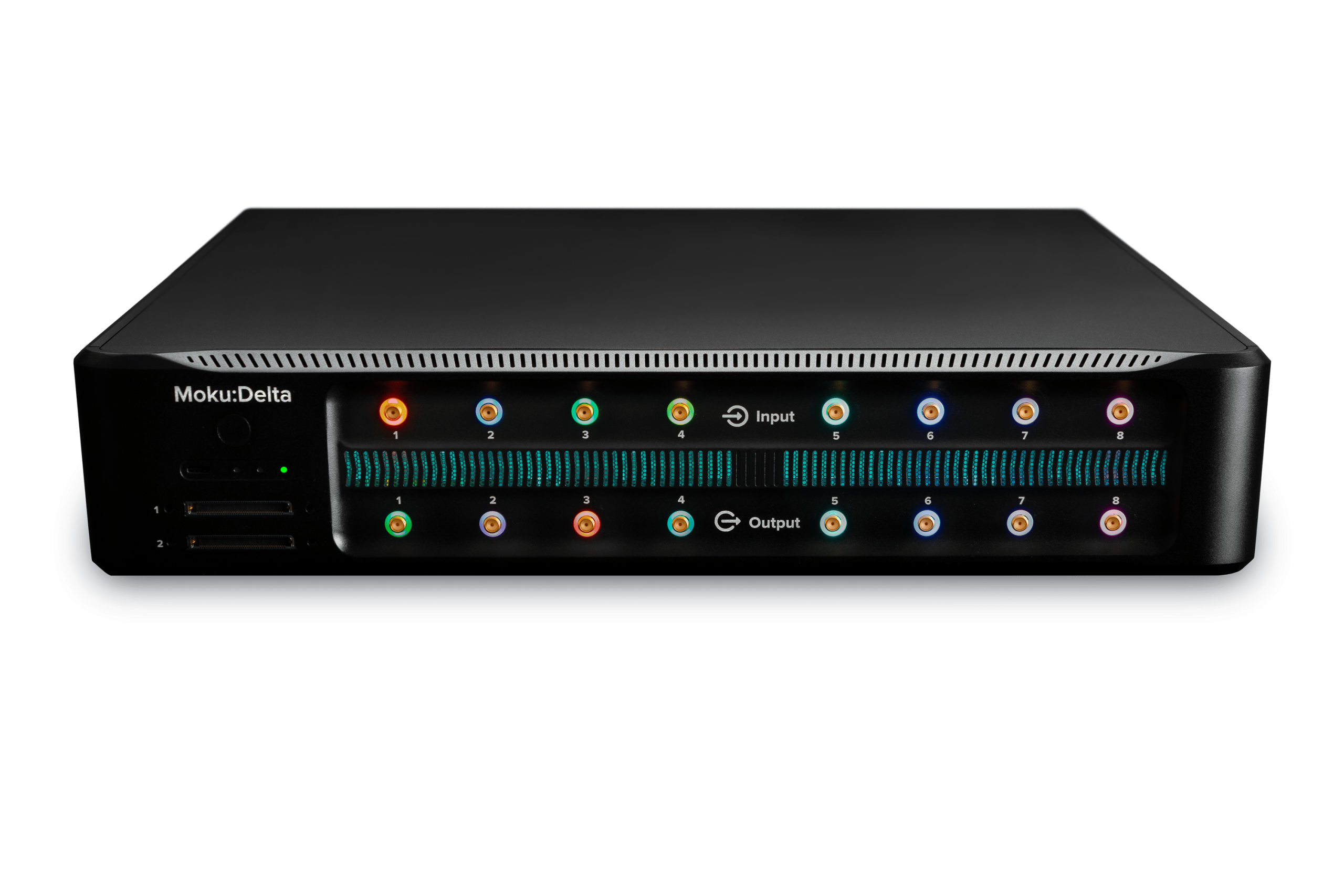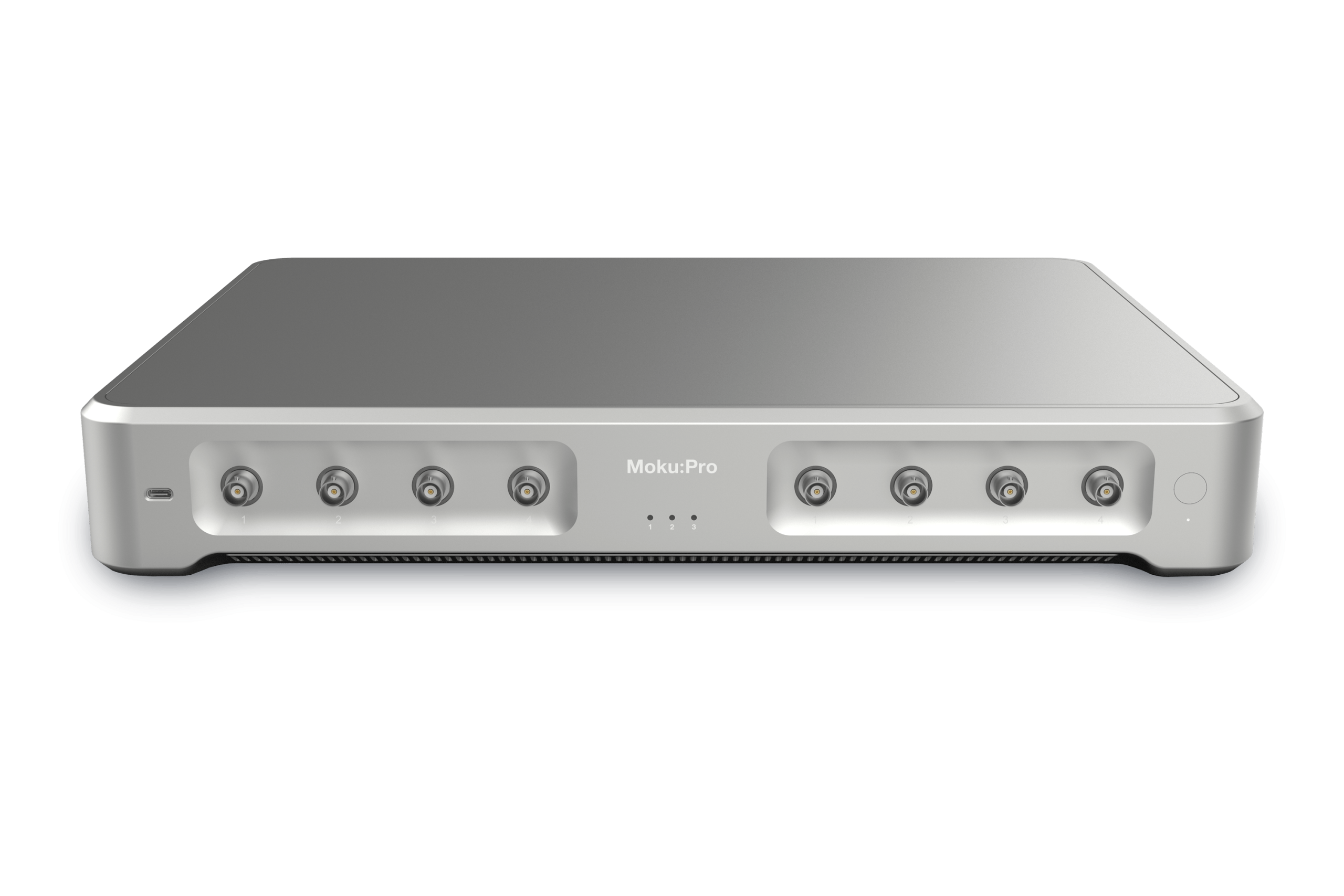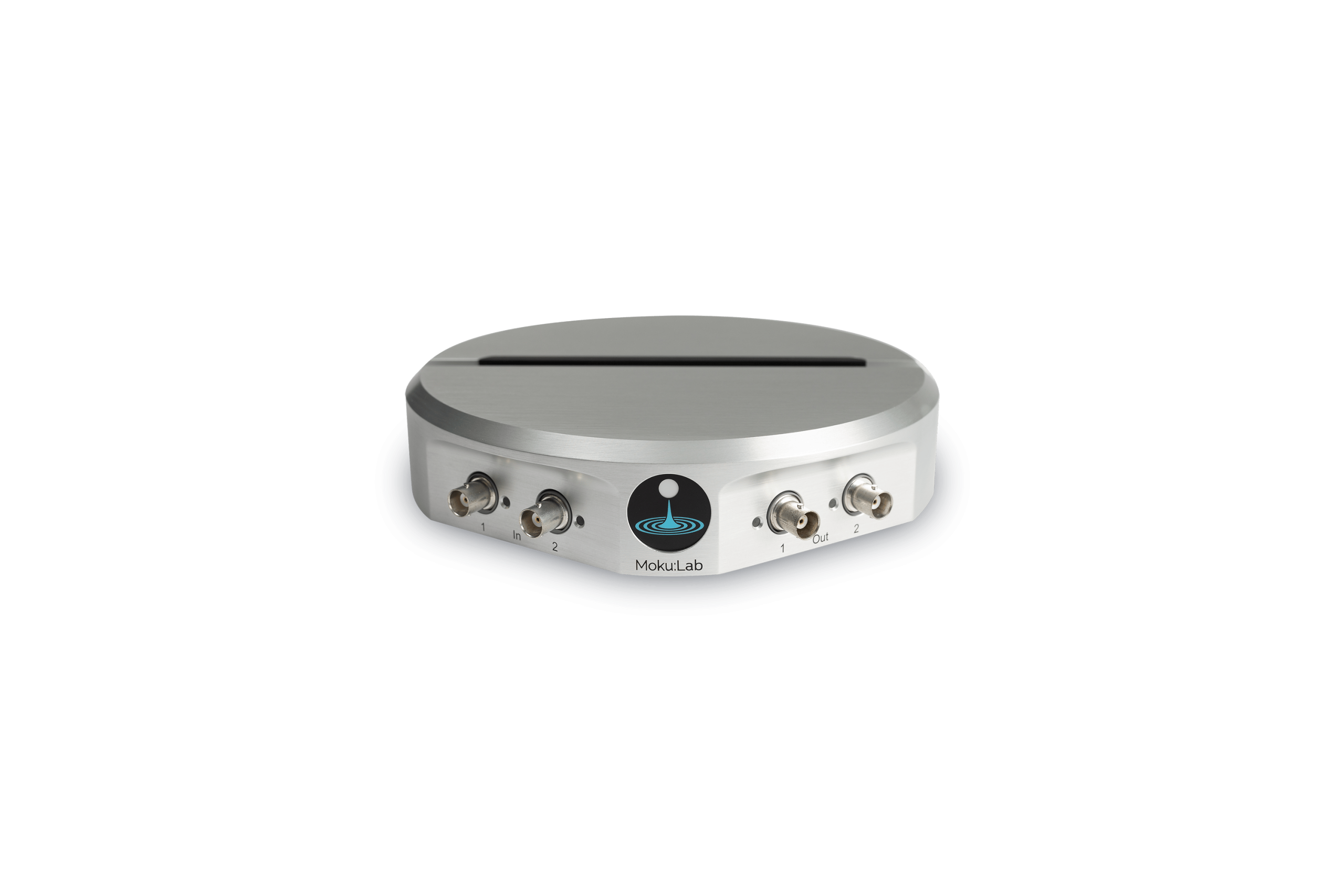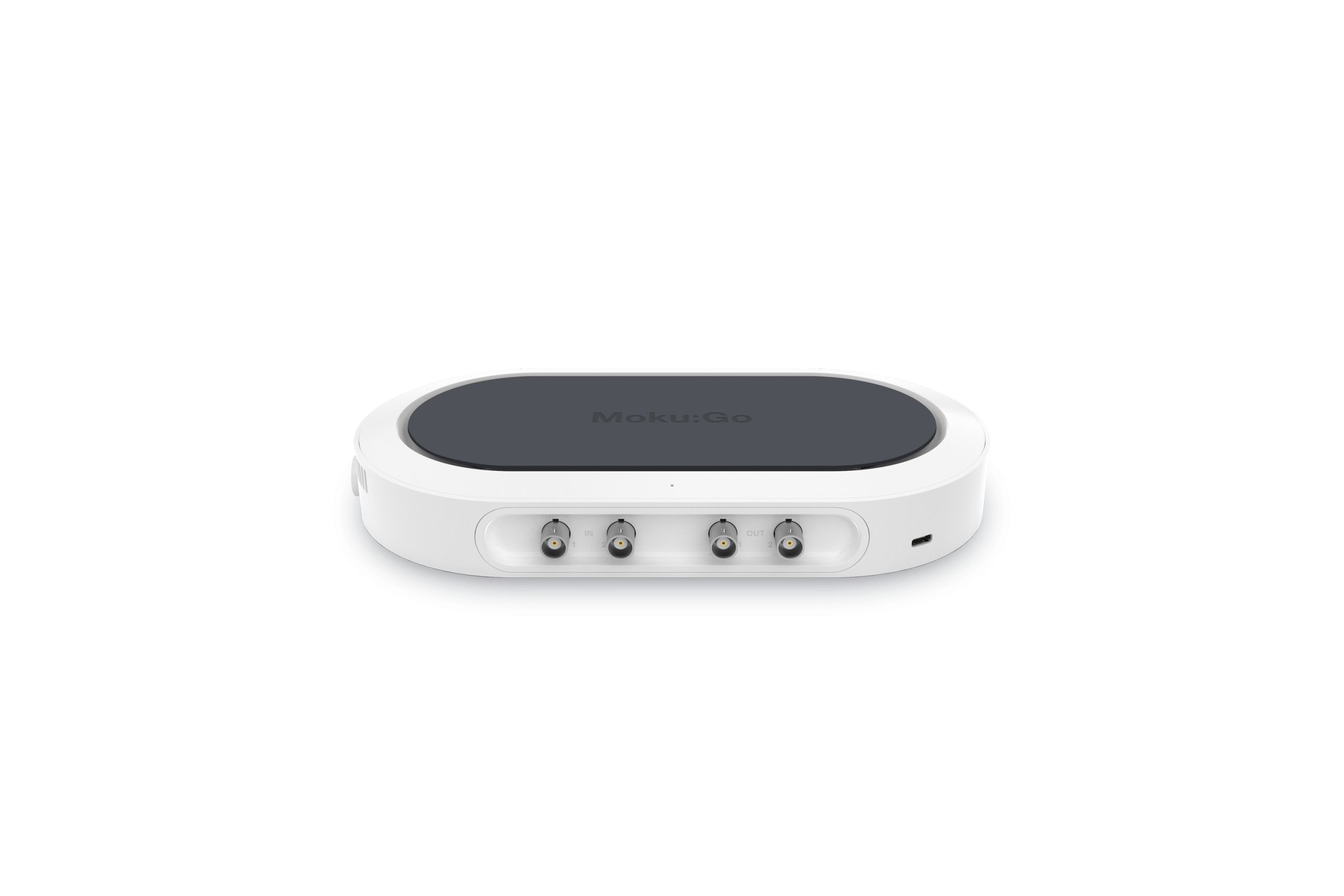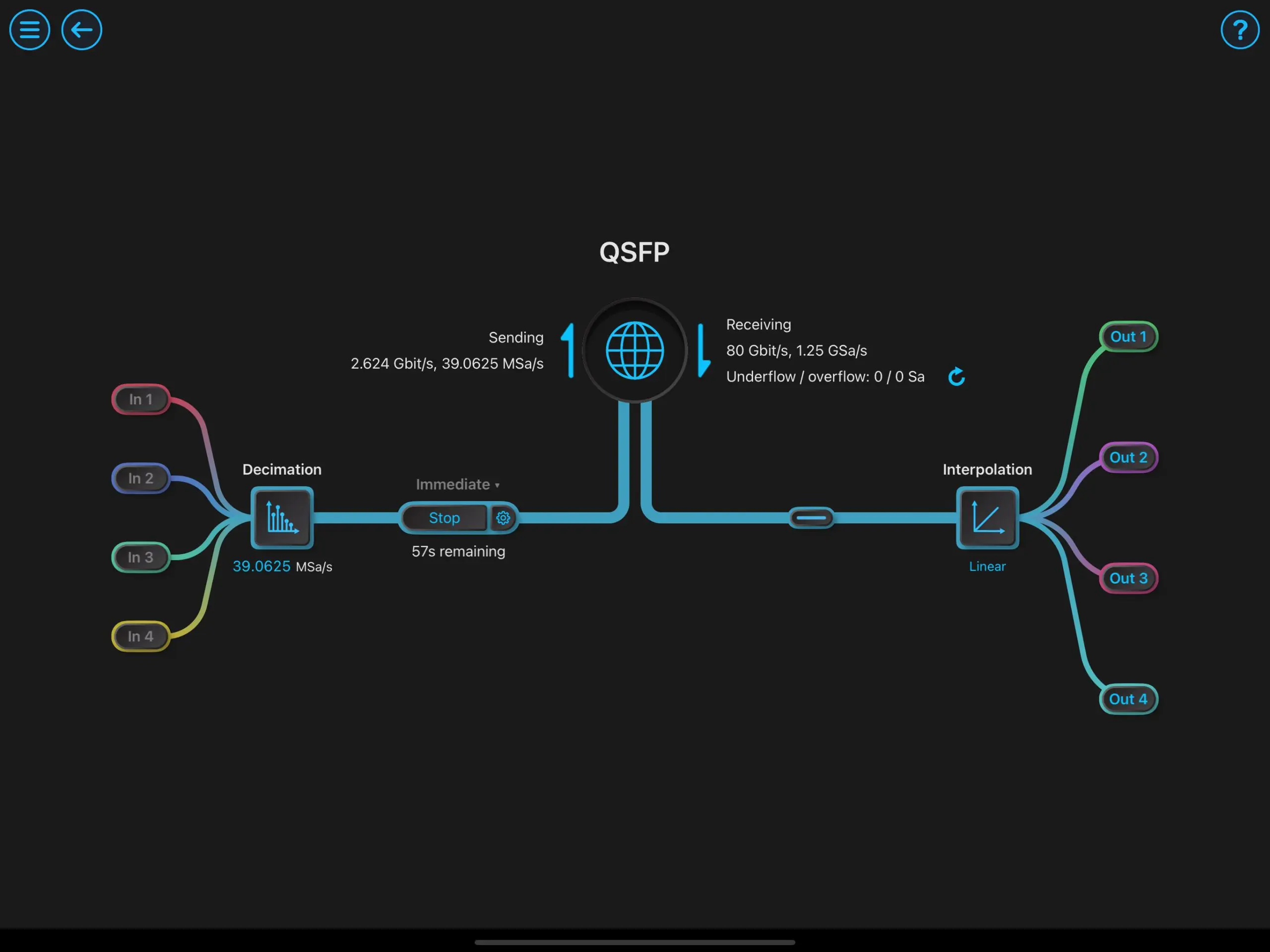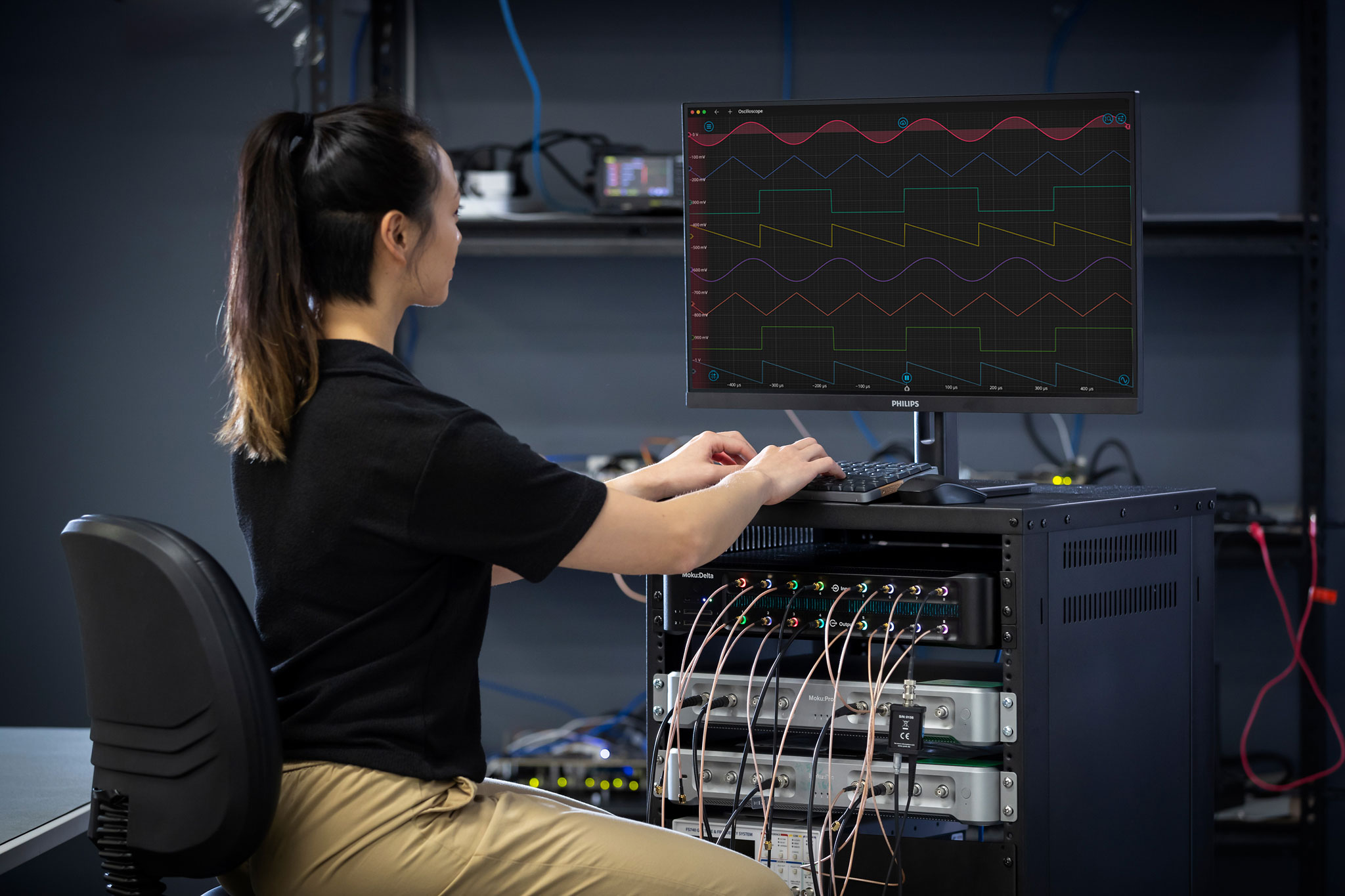Release 2.4.0 brings a number of new features to Moku:Go and enhancements to Moku:Pro, furthering Liquid Instruments’ goal of creating more accessible lab technology through software-defined instrumentation. This release brings three more advanced tools to Moku:Go, building on the addition of the Lock-in Amplifier and digital filter boxes in April and further bridging the gap between student instrumentation and professional lab equipment.
Protocol Analyzer
Moku:Go’s Logic Analyzer instrument has added protocol analysis to its feature set, and now supports SPI, I2C, and UART protocols. This, combined with the pattern generation functionality positions Moku:Go as one of the most capable, cost-effective instruments on the market for stimulating and characterizing digital systems.
Multi-instrument Mode
Run two instruments simultaneously and begin building powerful, custom systems without any additional hardware. Easily design and characterize a controller by running the PID Controller and Frequency Response Analyzer side-by-side in Multi-instrument Mode. Pair the Frequency Response Analyzer with the Digital Filter Box or FIR Filter Builder to investigate the detailed transfer function of the filter. While the individual instruments are powerful tools on their own, Multi-instrument Mode opens up countless new possibilities and enables users to scale their projects without the need for additional hardware.
Moku Cloud Compile
This cloud-hosted tool, previously available exclusively on Moku:Pro, empowers users to build custom HDL and deploy it to Moku:Go’s FPGA. The custom logic can be connected directly to Moku:Go’s analogue and digital I/O, or interconnected with other instruments in Multi-instrument Mode.
Perhaps the most exciting addition to the instrument suite, Moku Cloud Compile brings real time DSP education into university curriculum with little to no IT, and no bespoke equipment overhead.
Moku:Pro Enhancements
Moku:Pro’s existing instruments continue to see consistent feature enhancements as well. In this release, the Phasemeter’s maximum tracking bandwidth has increased from 10 kHz to 1 MHz to address highly dynamic control and phase-lock applications.
The Frequency Response Analyzer saw an increase in maximum number of sweep points up to 8,192 for higher resolution sweeps across a wider frequency range. Additionally, a new dynamic reference mode which allows input 1 to be selected as a normalization source, thus enabling real-time de-embedding without the need to explicitly capture a normalization trace.
This gives users the ability to compare several systems in real time. Additionally by combining with a Digital Filter Box tool in Multi-instrument Mode, the amplitude of the swept sine can be tweaked to track large system responses and reduce noise on small features.
Multi-instrument Mode is also now available on the desktop app for Moku:Pro in addition to the iPad, further extending workstation flexibility.
These new features are available now through an easy software upgrade. You can download the Windows and Mac app update here, or the iPad app here. For step-by-step instructions on updating, please see this Knowledge Base article.
We’re excited to continue building on these capabilities, leveraging the power of software-defined hardware that can evolve and improve over time.
Have questions or want a printable version?
Please contact us at support@liquidinstruments.com
